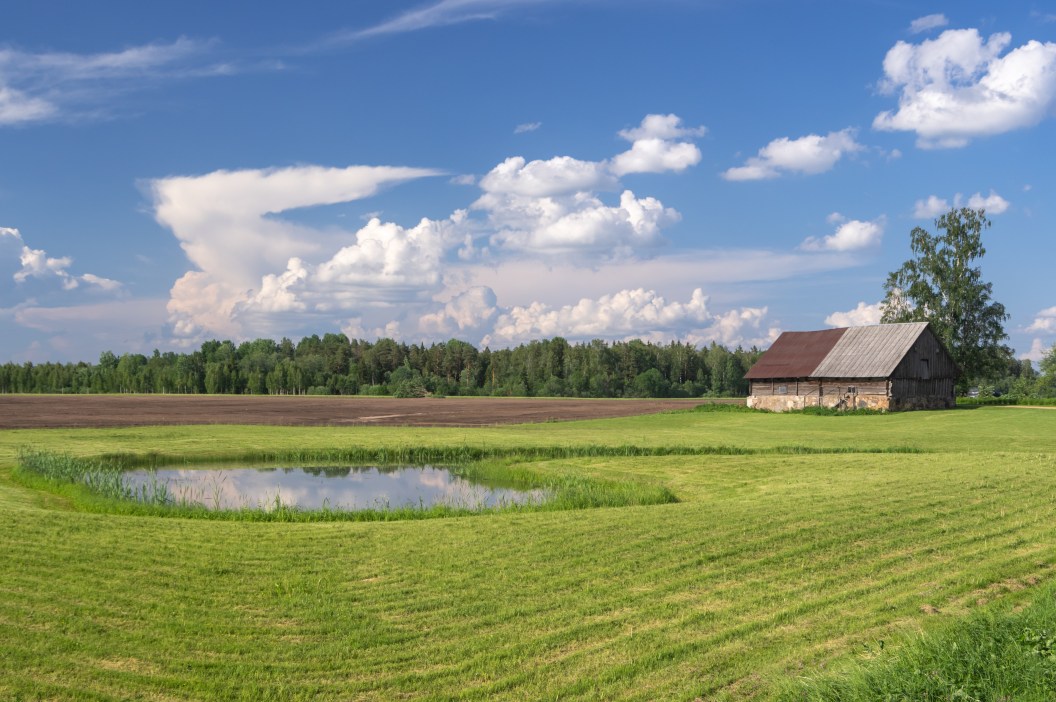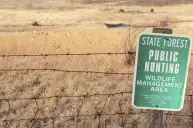The word homestead, which means to live self-sufficiently off the land, has historically evoked visions of the Wild West, and grizzled men with their hardened families striking out into the backcountry to carve out a home from the land. And it makes sense: Many early U.S. settlers learned how to find land for homesteading the hard way.
The concept began the Homestead Act of 1862, which was signed into law by Abraham Lincoln. The Homestead Act was a land program that gave away public land to private citizens; 260 million acres, or 10 percent of the U.S. was settled under the act. Homesteaders were able to claim up to 160 acres of land at the cost of a filing fee, provided they lived on the land, built a home, and improved and farmed the land. The prime land was homesteaded quickly, and by the 1930s, homestead claims dropped off. The Act remained in effect until 1976 in the Lower 48 and 1986 in Alaska.
How You Can Homestead Today
While the Homestead Act is no longer around, the notion of "homesteading" has lately seen a resurgence. With real estate prices and interest rates soaring, and inflation taking a chunk out of everyone's income, more people are turning to a simpler, more frugal way of living. Modern homesteaders are typically looking to get off the grid, and often grow their own food, raise livestock, and make their own household goods. Many also are hoping for ample land to hunt and fish on.
While you can no longer claim 160 acres for yourself for free, you can still find yourself a small plot of homestead land for a farm or ranch setup today. There are many different types of homesteads and a multitude of ways to go about finding one that meets your needs. Different types of homesteads require different processes to secure a deed, and much of it depends upon your own hard work and persistence
We've rounded up four ways you can do it today. Here's how to find land for homesteading.
1. Move to Alaska
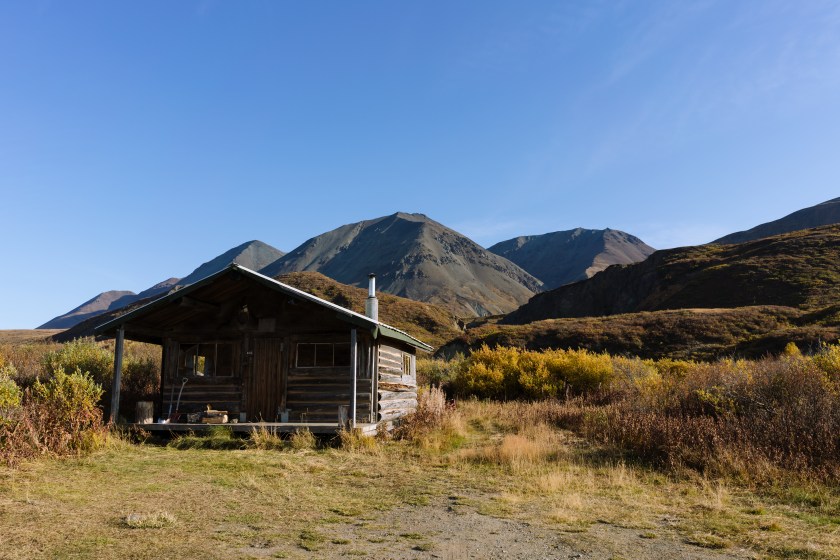
Getty Images, Anakin Fox
If you're looking for a homestead for hunting, fishing, or camping, your best bet is to look to the Far North, and the Alaska Department of Natural Resources (DNR). The Last Frontier is one of the few remaining places still actively putting remote land out for bid for new settlers.
While this land won't be completely free, it's likely as cheap as you will find pristine, truly wild land. This is off-the-grid living here for the most part, so be prepared to commit yourself to a level of homesteading that's ratcheted up a few notches. Most of the land that goes out for bid is also not accessible by road; be sure you have a plan to get to your land before committing to your purchase. Most Alaskans use bush planes, boats, four-wheelers, or snowmobiles to get to their homestead land.
There are three ways the Alaska DNR sells their land: first, by a sealed-bid auction, where potential buyers submit a sealed bid with their highest price and the highest bid wins the right to buy the piece of property; second, by an over-the-counter sales system, where land is sectioned off and then sold for directly at or under the appraised value; and finally through a site staking system, where you get to go and stake a claim for a property, which is then assessed and sold to you for the appraised market value.
2. Look Locally in the Lower 48

Getty Images, Graphixchon
While the U.S. government on the whole doesn't give away free land anymore, some state and local governments do. If Alaska is a little too remote (or too cold) for you, look into other more southern states with localities that have quasi-homestead land rules.
Small remote towns offer land for free via application. Many of these communities are small and are looking to build their population. Some other possible homestead options fall into the "urban" category. Urban homesteading, while not providing you the land to hunt or fish on, is a viable option for people who are looking to get off the grid, rather than simply recreate.
The best way to find these particular homesteading opportunities is to contact local governments. Many have offerings listed on the web, but there are many more that may be available if you make the effort to search them out.
3. Ease into Homesteading by Housesitting
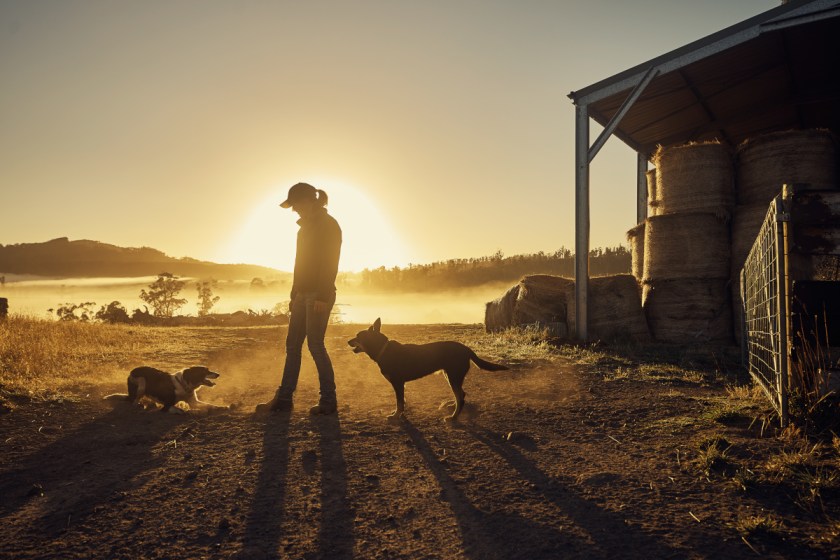
Getty Images, pixdeluxe
If small-town or urban homesteading isn't your thing, you'll have to think outside the box to get inexpensive, wilderness homesteading land that allows you the freedom of hunting and fishing. One way to do this for free would be house- or land-sitting.
Many people who have large lands or properties use them as second properties but need them cared for all year long. There are many long-term house or land-sitting opportunities, not only in the United States but around the world. Check websites like Trusted Housesitters or WWOOF (World Wide Opportunities On Organic Farms), as well as Craigslist.
By starting with this kind of caretaking, you'll be able to learn about the homesteading process and work your way into understanding and accepting the work involved in owning your own homestead. Whether you get paid to oversee the land or you're just able to use it and live on it for free, it's a nice way to introduce yourself to the idea and ensure it's something you truly want to commit to.
4. Scout Your Own Real Estate
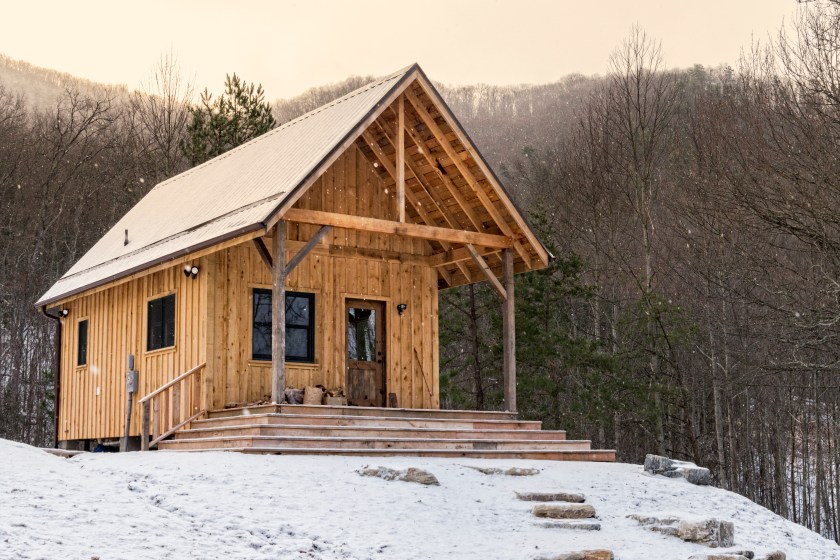
Getty Images, written
Outside of these opportunities, your only other option purchasing your own piece of land to homestead. This gives you a little more freedom when it comes to where you are going to live, but it also means that you may have to come up with some big-time cash if you want prime land.
If your goal is less wilderness-connected and you're concerned less with large acreage and more with being able to build a proper home and life, then the options are more open. It'll be even easier if you don't care where you live, as you'll be able to jump on prime opportunities when they pop up. Many off-grid homesteaders acquire their own little piece of heaven simply by not being too picky. If you're looking for a new adventure, it can be exciting not knowing whether you'll be living in Ohio, Colorado, Maine, or New York during the search. Cast a wide net with realtors, and you may be surprised what they call to offer you.
The Best States for Homesteading
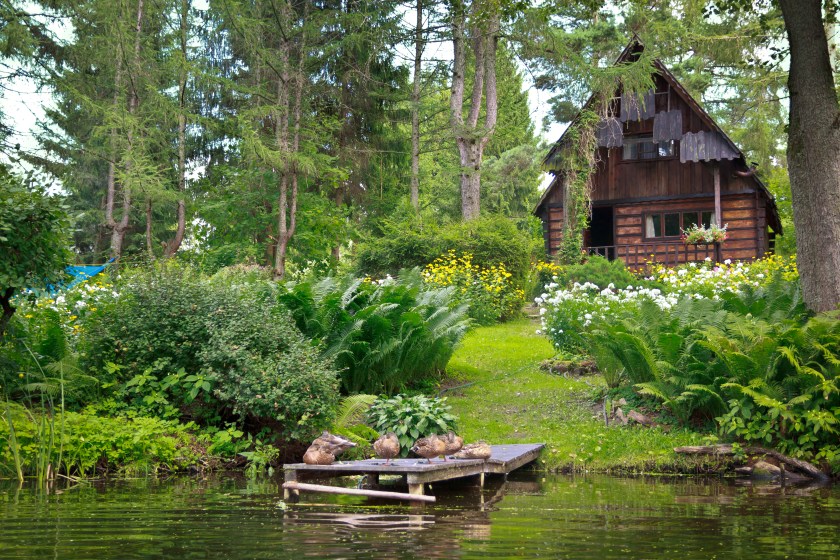
Getty Images, ewg3D
Now that you know how to find land for homesteading, you may wonder where to look in the Lower 48. States in particular that have a large number of homesteading opportunities are Kansas, Nebraska, Iowa, Michigan, and Minnesota. Generally, opportunities are more through city municipalities, though, such as Plainview, Kansas, Elwood, Nebraska, and Flagler, Colorado. The great thing about many of these properties is that they come at no to low costs, and some even include extended property tax benefits. There are literally acres of land begging to be homesteaded.
A lot of these opportunities have strings attached, including specific requirements for when or how a house must be built, and even specifications on the size or layout of the house. But if those are things you're willing to work with and compromise on, you can be sitting on prime land in an up-and-coming community for little to no cost on the property.
Figure out (generally) where you want to live, and start making phone calls. If you're passionate and show a willingness to work hard, you'll be surprised at how quickly doors start to open for homesteaders.
READ MORE: Best States for Homesteading With 5 Different Purposes in Mind
